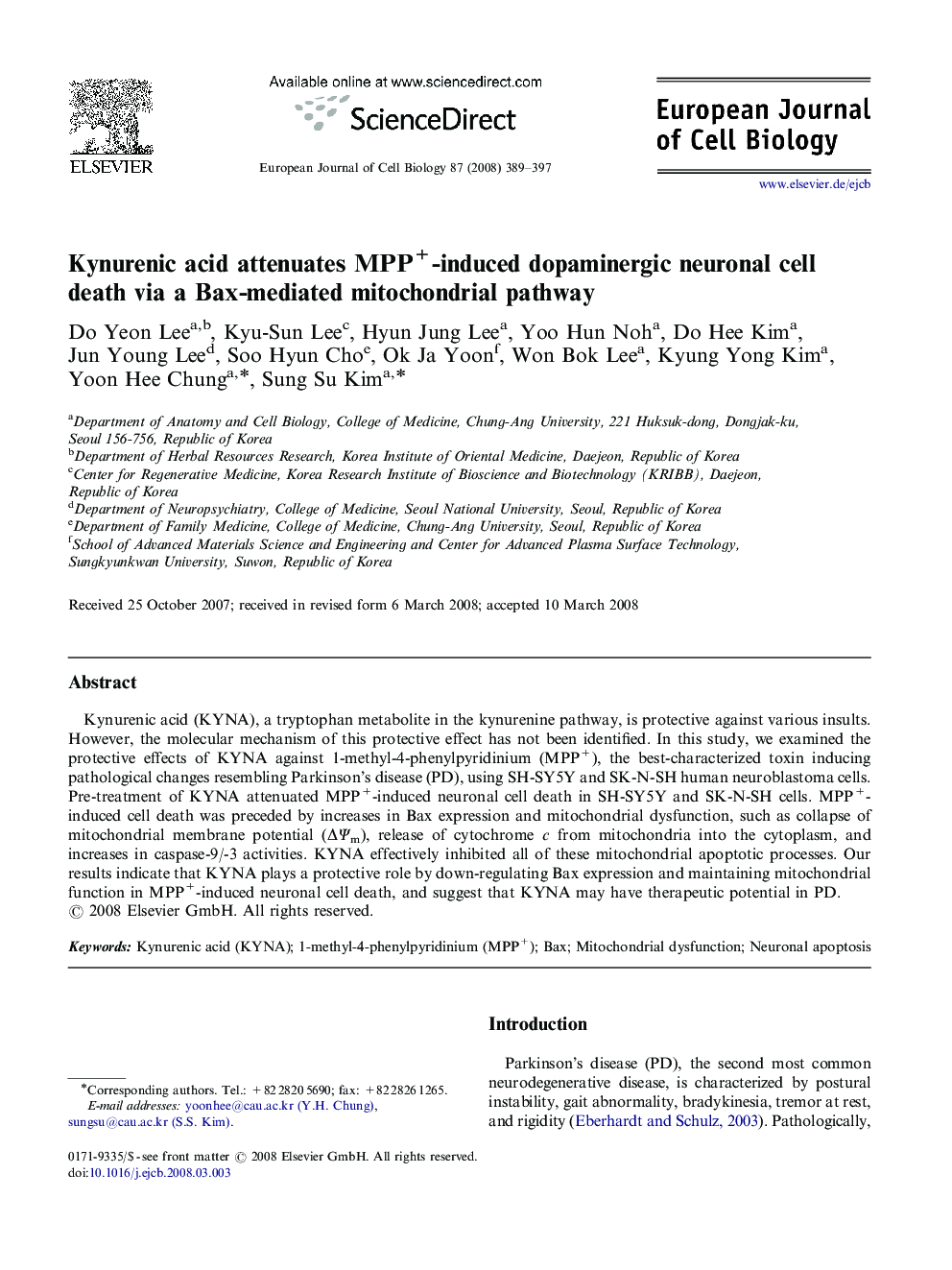| Article ID | Journal | Published Year | Pages | File Type |
|---|---|---|---|---|
| 2179183 | European Journal of Cell Biology | 2008 | 9 Pages |
Kynurenic acid (KYNA), a tryptophan metabolite in the kynurenine pathway, is protective against various insults. However, the molecular mechanism of this protective effect has not been identified. In this study, we examined the protective effects of KYNA against 1-methyl-4-phenylpyridinium (MPP+), the best-characterized toxin inducing pathological changes resembling Parkinson's disease (PD), using SH-SY5Y and SK-N-SH human neuroblastoma cells. Pre-treatment of KYNA attenuated MPP+-induced neuronal cell death in SH-SY5Y and SK-N-SH cells. MPP+-induced cell death was preceded by increases in Bax expression and mitochondrial dysfunction, such as collapse of mitochondrial membrane potential (ΔΨm), release of cytochrome c from mitochondria into the cytoplasm, and increases in caspase-9/-3 activities. KYNA effectively inhibited all of these mitochondrial apoptotic processes. Our results indicate that KYNA plays a protective role by down-regulating Bax expression and maintaining mitochondrial function in MPP+-induced neuronal cell death, and suggest that KYNA may have therapeutic potential in PD.
